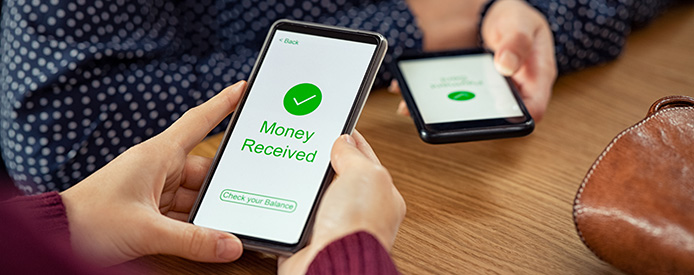Payment apps, such as VENMO, Cash App, and Zelle® offer a convenient way to send, request, and receive money with family and friends. However, scammers can use P2P apps as another way to take advantage of people by collecting money too.
Some examples of P2P scams:
A fraudster may place a false online ad for merchandise, and after you pay for the merchandise through a P2P payment service, the fraudster keeps the money and never actually sends you what you purchased.
You receive a text message regarding a recent charge on your debit card, and it asks you to verify the transaction. You reply that you don’t recognize the charge in question. You then receive a phone call from someone claiming to be a representative of the organization requesting you to verify your account information, including your online credentials and a texted verification code. If you provide the information, the fraudster will then use it to log in to your account and use the linked P2P payment service feature to transfer funds.
You are hired for a job and receive a fraudulent check from the ’employer’. You are told by the “employer” to deposit the funds using mobile check deposit and to transfer the funds out using a P2P payment service. By the time the check bounces, the funds are already gone, and you are responsible for a potential negative account balance.
When you use a P2P payment service, follow these tips to keep your money safe:
Only send money to, and receive money from, people you know and trust. When you use a P2P payment service to send money, the transactions are instantaneous, and most are irreversible, so it’s important to make sure you know and trust who you are sending the money to.
Do not share your personal or financial information with anyone unless you initiated the contact and know that the contact is legitimate.
Opt-in for notifications of transactions so you can monitor your account regularly.
Enable extra security features, such as PINs and multi-factor authentication.
Make sure the recipient’s contact information is correct. If you mistype a recipient’s email address, phone number, or name, the money could go to the wrong person.
Keep your app updated. Make sure the P2P app you use is the latest version, so it has the most up-to-date protection and security features.



